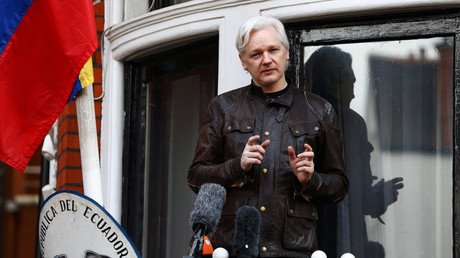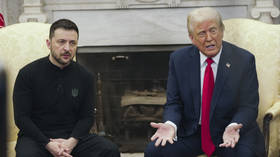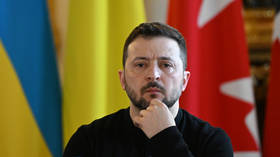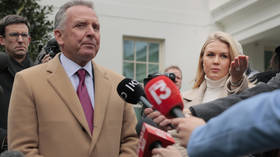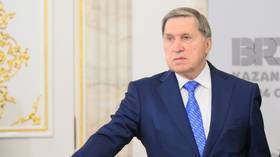Assange should secure immunity before taking risk of testifying to Senate – whistleblower Kiriakou
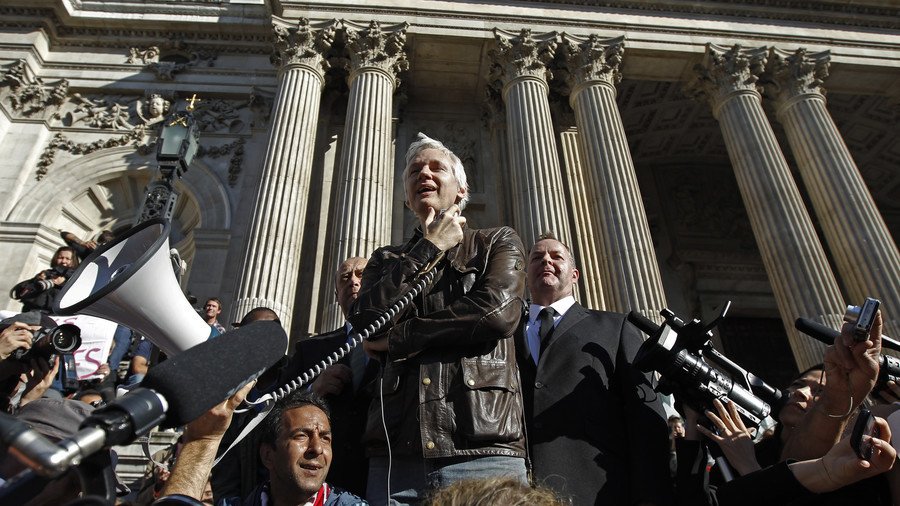
Julian Assange should ensure he’s granted immunity from prosecution before testifying to the Senate Intelligence Committee, former CIA officer John Kiriakou told RT, citing previous US attempts to charge those who did testify.
“If Assange is offered immunity by the committee, he then could not be charged with the crime because anything he said before the committee could not be used against him,” Kiriakou stressed, recalling how in 1987 former marine Oliver North was granted congressional immunity in exchange for his testimony on the Iran-Contra affair.
The Department of Justice then filed multiple felony charges against North, and he was arrested. But the Supreme Court later dismissed the charges, citing his immunity. Kiriakou believes the same measure can shield Assange, who has spent the last six years living in the Ecuadorian embassy in London fearing extradition to the US.
The WikiLeaks founder was earlier requested to give a closed interview to the staff of the Senate Select Intelligence Committee as part of the investigation into alleged Russian interference in the 2016 presidential election – an accusation Moscow flatly denies.
In October, 2017, WikiLeaks published the cache of emails belonging to Hillary Clinton’s campaign chair John Podesta, whose account the US Intelligence Community claims was hacked by ‘Russian operatives.’
Kiriakou reminded viewers that while many view Assange as a journalist and publisher, American lawmakers generally have a much more negative perception of the whistleblower. “On the Senate Intelligence Committee almost nobody believes that,” he said, explaining why the potential trip to the US can be risky for Assange.
Over the years, US politicians and intelligence officers have branded Assange a “traitor” and an “enemy of the state” for publishing classified materials on the wars in Iraq and Afghanistan, as well as leaking US diplomatic cables. Last year, the then-head of the CIA Mike Pompeo, who now serves as the secretary of state, labeled WikiLeaks a “non-state hostile intelligence service.”
The animosity harbored towards Assange suggests that the US Senate has “ulterior motives” for summoning him, human rights activist Peter Tatchell believes.
“I believe they want to snare him into somehow admitting or implying that he got information from Russian sources. That seems to be the focus of their attention,” the activist said, adding that the US authorities might use the interview to collect new evidence to prosecute Assange in the future.
Former MI5 officer Annie Machon, meanwhile, argues that it may be “difficult” for Assange to agree to a closed interview with US officials on such a sensitive subject. She believes he “always has got to be very careful about how they approach this, how it might be perceived, and what might be the outcome.” But crucially, the very nature of the hearing goes against the principles of WikiLeaks which Assange has staunchly defended.
“The whole ethos of WikiLeaks is to be open and transparent, and to bring the information out for the public’s good,” she said.
Like this story? Share it with a friend!
